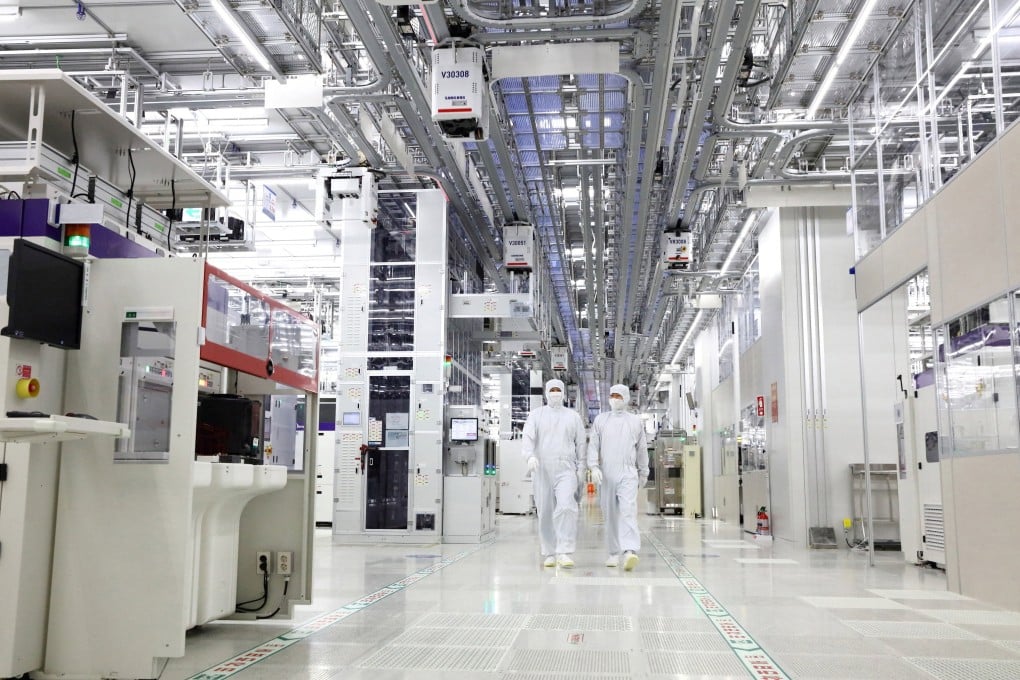South Korea cuts chip production most since global financial crisis as demand cools
- Production dropped 41.8 per cent from a year earlier, worsening from a 33.9 per cent fall in January, according to the national statistics office
- Chip makers are important constituents of Korea’s trade-reliant economy, accounting for about 12 per cent of the total exports in February

South Korean chip makers reduced their production by the most since 2008 in February, a sign of declining semiconductor demand that may be deeper and longer-lasting than feared.
Production dropped 41.8 per cent from a year earlier, worsening from a 33.9 per cent fall in January, according to data from the national statistics office. Inventories increased by 33.5 per cent and factory shipments fell 41.6 per cent, adding to signs of continued weakness.
Chip makers are important constituents of South Korea’s trade-reliant economy, accounting for about 12 per cent of the total exports in February. The deterioration of global chip demand adds to challenges for the country’s economy that already contracted last quarter from the previous three months.
Seoul's policymakers are hoping for a rebound in the second half and maintaining their focus on investment in semiconductors as a key growth engine for the economy. On Thursday, the country's parliament approved a boost to the semiconductor industry by giving companies tax breaks to spur investments.
Threats to South Korea’s chip industry include rising US-China trade tensions and a potential economic recession that may further hurt demand, as central banks keep tightening their policy to combat inflation. Growing lay-offs by tech companies in the US also highlight weakening enthusiasm for investment.
Separately, South Korea’s total industrial output fell more than median forecast of a Bloomberg survey in February, sliding 8.1 per cent from a year earlier. The cyclical leading index also fell 0.3 per cent point from a month earlier.